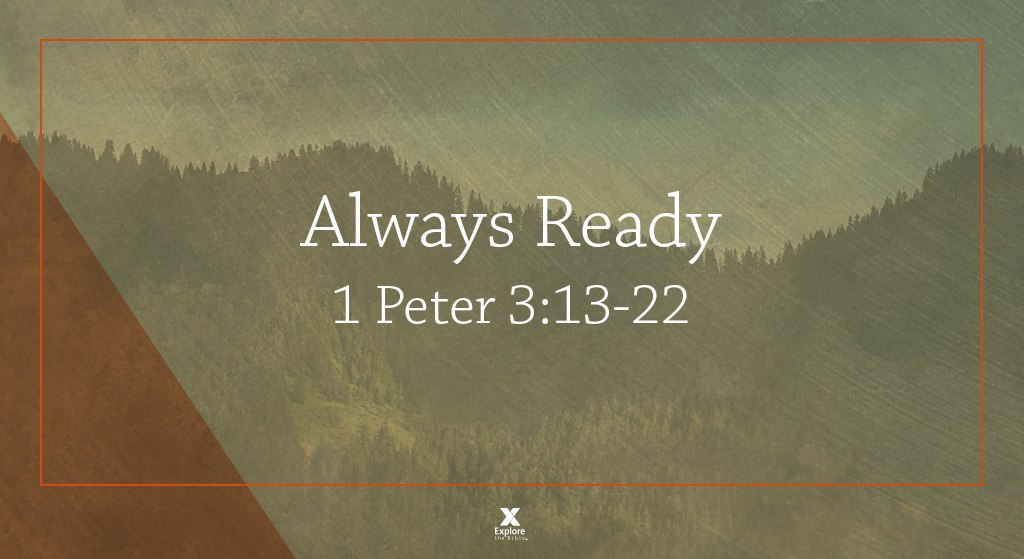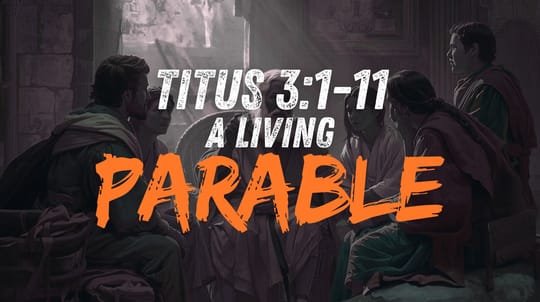Welcome to the next part of our series, "Blessed Assurance."
Here is today's text:
(1 Peter 3:13-22) Now, who will want to harm you if you are eager to do good? But even if you suffer for doing what is right, God will reward you for it. So don’t worry or be afraid of their threats. Instead, you must worship Christ as Lord of your life. And if someone asks about your hope as a believer, always be ready to explain it. But do this in a gentle and respectful way. Keep your conscience clear. Then if people speak against you, they will be ashamed when they see what a good life you live because you belong to Christ. Remember, it is better to suffer for doing good, if that is what God wants, than to suffer for doing wrong! Christ suffered for our sins once for all time. He never sinned, but he died for sinners to bring you safely home to God. He suffered physical death, but he was raised to life in the Spirit. So he went and preached to the spirits in prison— those who disobeyed God long ago when God waited patiently while Noah was building his boat. Only eight people were saved from drowning in that terrible flood. And that water is a picture of baptism, which now saves you, not by removing dirt from your body, but as a response to God from a clean conscience. It is effective because of the resurrection of Jesus Christ. Now Christ has gone to heaven. He is seated in the place of honor next to God, and all the angels and authorities and powers accept his authority.
And that word is the Good News that was preached to you..
We can stand strong because we have a blessed assurance that nothing on Earth can touch.
Overall Commentary: 🌎
Peter now turns to how we should live in front of others. He reaches for the highest goal of not being ashamed of who we are in our daily lives, as our lives set the stage for our conversations.
Commentary.
Verse 13-15. Explain.
Verse 13- Peter is being rhetorical by asking, "Who will want to harm us if we are doing good?" He is summarizing everything that has been said previously. All the things we do are to live to do good.
Verse 14- He is paraphrasing Isaiah 8. In this passage, Isaiah is warning the people to place God above the state. At this time, the state was not honoring God in its alliances with other nations.
- When we live for God, we do not have to fear what others may say or the threats they pose.
Verse 15- This is the famous verse that gives us an entire field of Christian doctrine called "apologetics." The word "defense" is the Greek word "apologia." This does not mean giving an apology, such as "I'm sorry for my belief in God." This is to provide a reason for our hope. Peter says we should be ready to explain why we have hope in Jesus.
Verse 16-17. Live out Loud.
Verse 16- Peter is reminding the church that our lives will speak just as loudly as our words. People will see what we do more than listen to what we say. Our lives should be filled with gentleness and respect. He also says we should have a clear conscience. This means we should do nothing that we will be ashamed of later.
Verse 17- Suffering is not the goal; however, we trust that God has a plan. Therefore, we can trust Him to use whatever comes our way for His glory and our good.
Verse 18-22. Embrace the Mystery.
Verse 18- Summary of the Gospel.
Verse 19-20- These two verses are some of the most controversial in the entire New Testament. Four main views divide scholarship:
- The first view says Jesus descended to hell between His death and Resurrection. There are different compartments in hell. Therefore, He did not descend to punishment. He descended to where the fallen angels are currently being kept, who caused so much havoc in Genesis 6. He went to proclaim victory and declare the human race had been rescued.
- Believed by early church fathers and the majority of current scholars.
- The section view says the "Spirit of Jesus" preached through Noah as he preached to the people during the construction of the Ark. This would point to the overall message of trusting God in a long-term season of suffering.
- Believed by most reformers.
- The third view says Jesus went to hell to preach to those who died before the Cross and offer them salvation.
- The Catholic church has held a version of this to promote purgatory.
- The fourth view is that Jesus went to a compartment in hell called "Abraham's bosom" where He set free all those who had died in righteousness but were held in hell until the Cross.
Great scholars line up on various sides of this issue. I tend to agree with the first view, but still bow at the mystery of the text. The bottom line is the same: Christ overcame it all.
Verse 21-22- Baptism is declaring the victory of God. The celebration of baptism is so much more than we realize.
God's Promise:
(Hebrews 12:1-3 MSG) KEEP YOUR EYES ON JESUS, who both began and finished this race we’re in. Study how he did it. Because he never lost sight of where he was headed—that exhilarating finish in and with God—he could put up with anything along the way: Cross, shame, whatever. And now he’s there, in the place of honor, right alongside God. When you find yourselves flagging in your faith, go over that story again, item by item, that long litany of hostility he plowed through. That will shoot adrenaline into your souls!





















